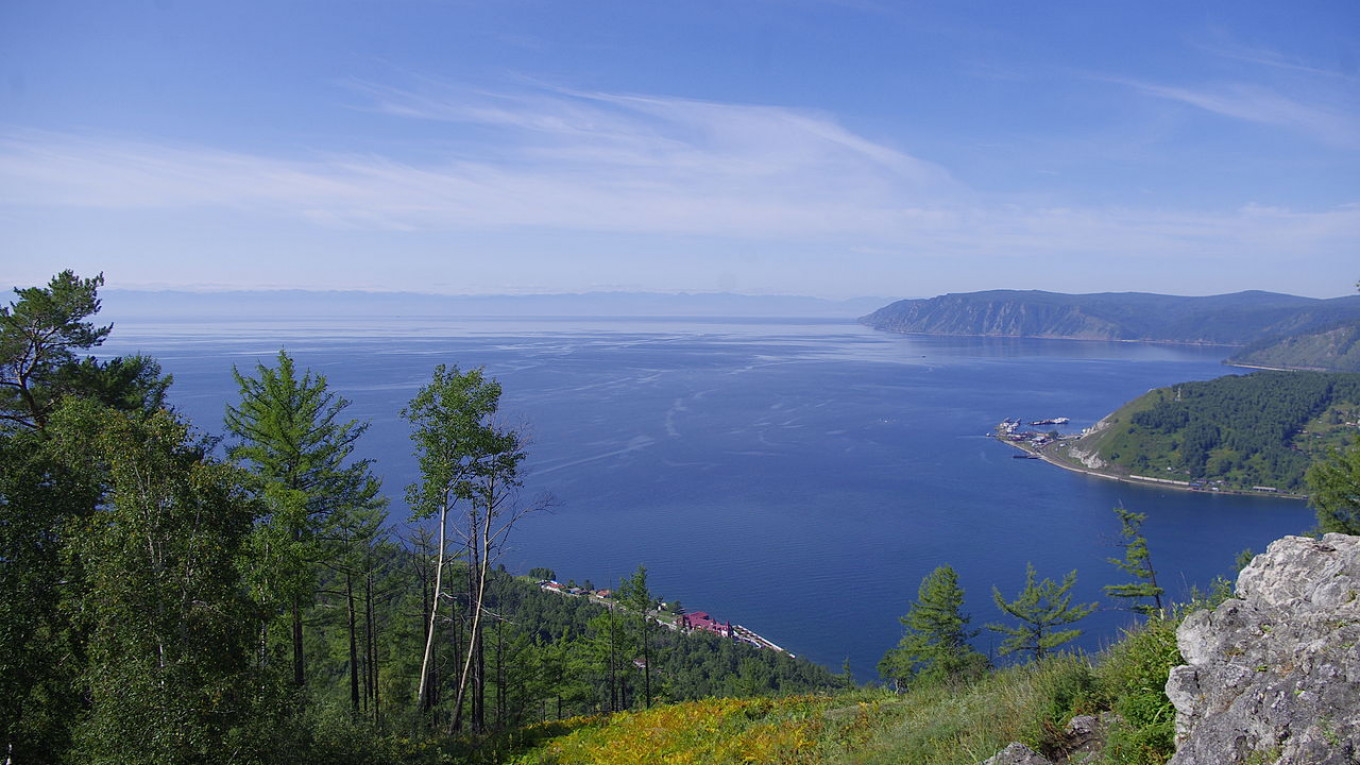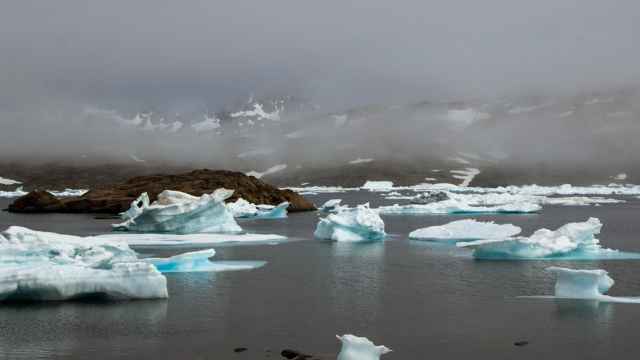Russian scientists on Saturday launched one of the world's biggest underwater space telescopes to peer deep into the universe from the pristine waters of Lake Baikal.
The deep underwater telescope, which has been under construction since 2015, is designed to observe neutrinos, the smallest particles currently known.
Dubbed Baikal-GVD, the telescope was submerged to a depth of 750-1,300 meters (2,500-4,300 feet), around four kilometers from the lake's shore.
Neutrinos are very hard to detect and water is an effective medium for doing so.
The floating observatory consists of strings with spherical glass and stainless steel modules attached to them.
On Saturday, scientists observed the modules being carefully lowered into the freezing waters through a rectangular hole in the ice.
"A neutrino telescope measuring half a cubic kilometer is situated right under our feet," Dmitry Naumov of the Joint Institute for Nuclear Research told AFP while standing on the lake's frozen surface.
In several years the telescope will be expanded to measure one cubic kilometer, Naumov said.
The Baikal telescope will rival Ice Cube, a giant neutrino observatory buried under the Antarctic ice at a US research station at the South Pole, he added.
Russian scientists say the telescope is the largest neutrino detector in the Northern Hemisphere and Lake Baikal -- the largest freshwater lake in the world — is ideal for housing the floating observatory.
"Of course, Lake Baikal is the only lake where you can deploy a neutrino telescope because of its depth," Bair Shoibonov of the Joint Institute for Nuclear Research told AFP.
"Fresh water is also important, water clarity too. And the fact that there is ice cover for two-two and a half months is also very important."
The telescope is the result of a collaboration between scientists from the Czech Republic, Germany, Poland, Russia and Slovakia.
A Message from The Moscow Times:
Dear readers,
We are facing unprecedented challenges. Russia's Prosecutor General's Office has designated The Moscow Times as an "undesirable" organization, criminalizing our work and putting our staff at risk of prosecution. This follows our earlier unjust labeling as a "foreign agent."
These actions are direct attempts to silence independent journalism in Russia. The authorities claim our work "discredits the decisions of the Russian leadership." We see things differently: we strive to provide accurate, unbiased reporting on Russia.
We, the journalists of The Moscow Times, refuse to be silenced. But to continue our work, we need your help.
Your support, no matter how small, makes a world of difference. If you can, please support us monthly starting from just $2. It's quick to set up, and every contribution makes a significant impact.
By supporting The Moscow Times, you're defending open, independent journalism in the face of repression. Thank you for standing with us.
Remind me later.






